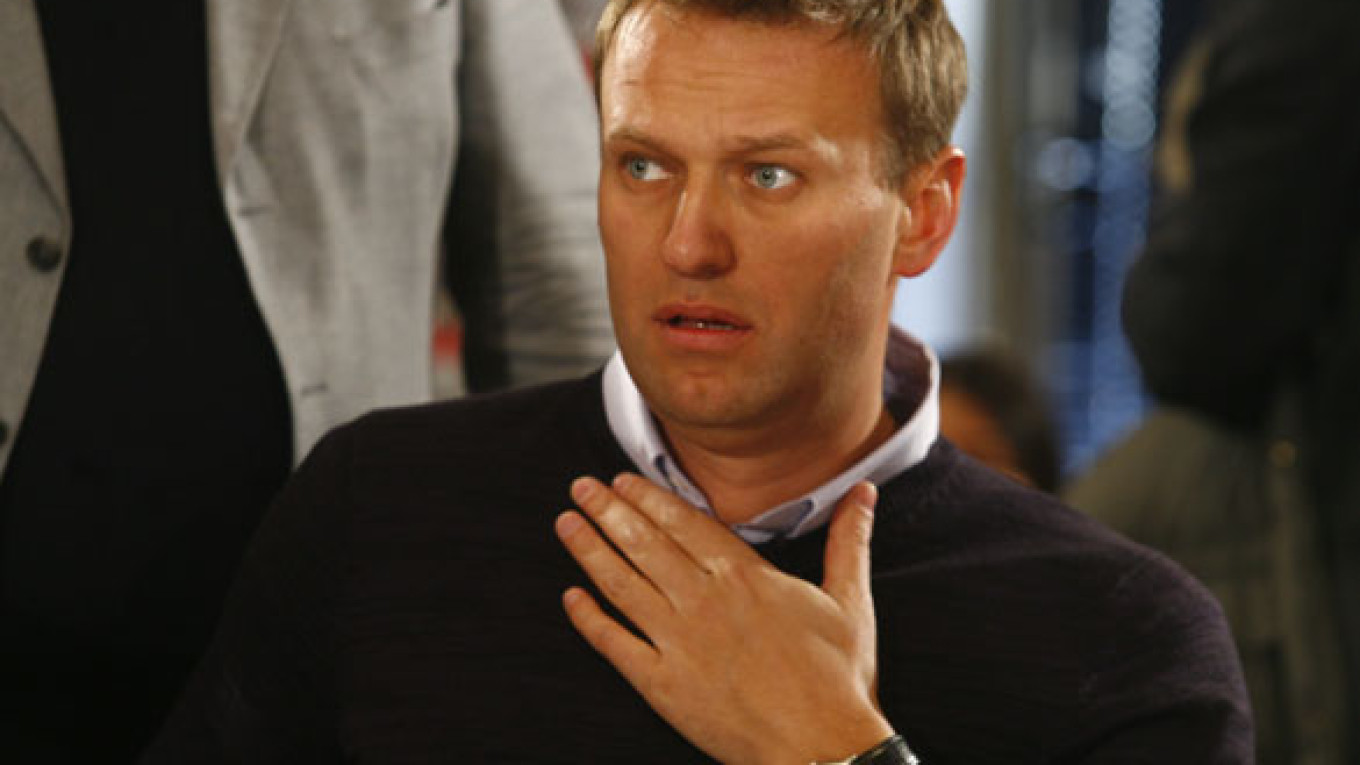Alexei Navalny, the opposition leader and anti-corruption blogger, was named by U.S. magazine Time as one the world's 100 most influential figures, drawing a protest Thursday from an aide to President-elect Vladimir Putin.
Navalny, who rose to prominence amid mass protests over December's disputed State Duma elections, is the only Russian mentioned on the list, which also includes the likes of Saudi women's activist Manal al-Sharif and American immigration rights activist Dulce Matuz.
“Influence was never easier — or more ephemeral,” Time wrote in an editorial Wednesday. “Which is why we try to choose those people whose influence is both lasting and, with a few notable exceptions, laudable.”
It praised Navalny for “harnessing the growth of Internet use to connect protesters via blogging.”
"Navalny has mastered the blogging and social networks that the opposition depends on since we are banned from the mainstream media," opposition figure and former chess champion Garry Kasparov wrote in a separate Time article.
Although the list includes world leaders like U.S. President Barack Obama, German Chancellor Angela Merkel and Chinese leader Xi Jinping, Putin is missing. Time named him as its person of the year in 2007.
Putin spokesman Dmitry Peskov complained that Putin’s absence was “a mistake.”
“It is, of course, a mistake — I just don't know what criteria they were guided by,” Peskov told Kommersant-FM radio. “In this case, I'll say this: [Putin's] authority within the country is well-known, it was confirmed electorally just recently, and Putin's international authority is also in no need of confirmation.”
Navalny indicated that he was more concerned that one of his staffers was not receiving treatment at a Moscow hospital than celebrating his appearance on the list.
“What is the point of being the most influential person if stupid Hospital No. 36 doesn’t want to treat your employees?” he wrote on his Twitter blog.
A Message from The Moscow Times:
Dear readers,
We are facing unprecedented challenges. Russia's Prosecutor General's Office has designated The Moscow Times as an "undesirable" organization, criminalizing our work and putting our staff at risk of prosecution. This follows our earlier unjust labeling as a "foreign agent."
These actions are direct attempts to silence independent journalism in Russia. The authorities claim our work "discredits the decisions of the Russian leadership." We see things differently: we strive to provide accurate, unbiased reporting on Russia.
We, the journalists of The Moscow Times, refuse to be silenced. But to continue our work, we need your help.
Your support, no matter how small, makes a world of difference. If you can, please support us monthly starting from just $2. It's quick to set up, and every contribution makes a significant impact.
By supporting The Moscow Times, you're defending open, independent journalism in the face of repression. Thank you for standing with us.
Remind me later.


